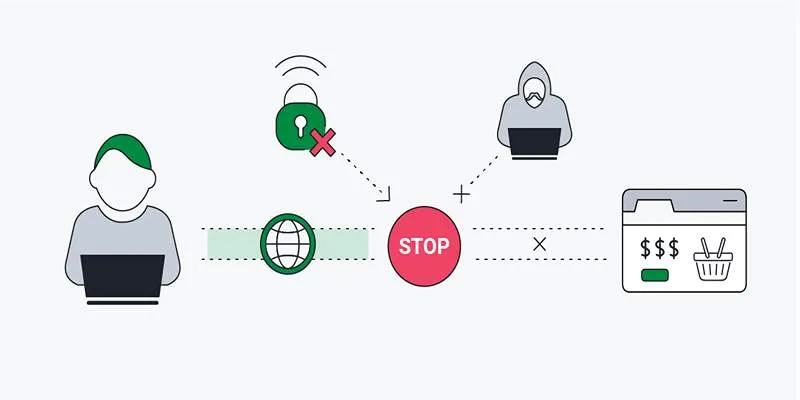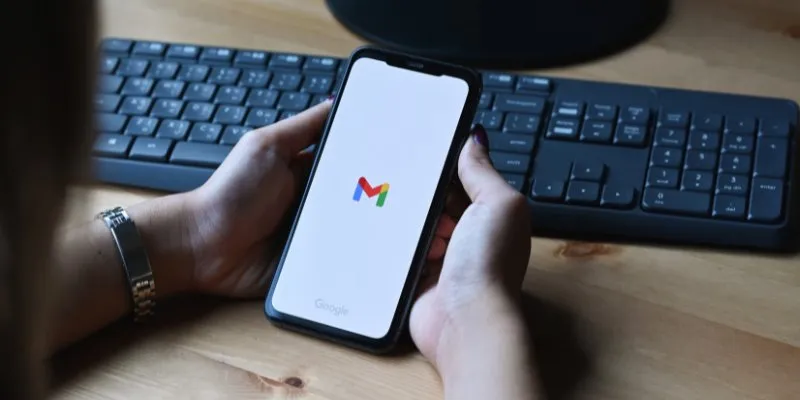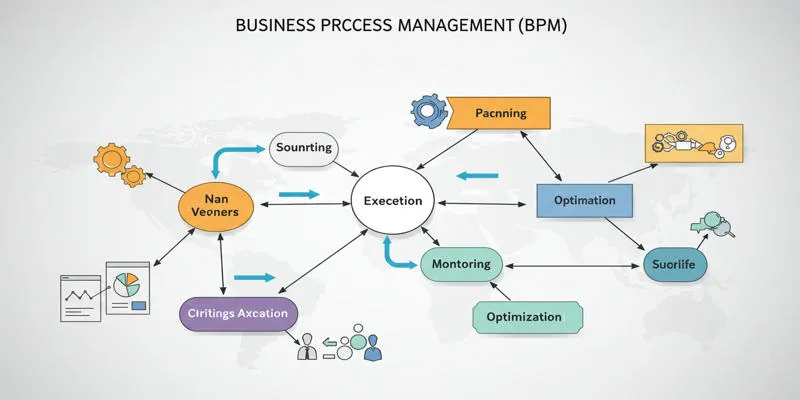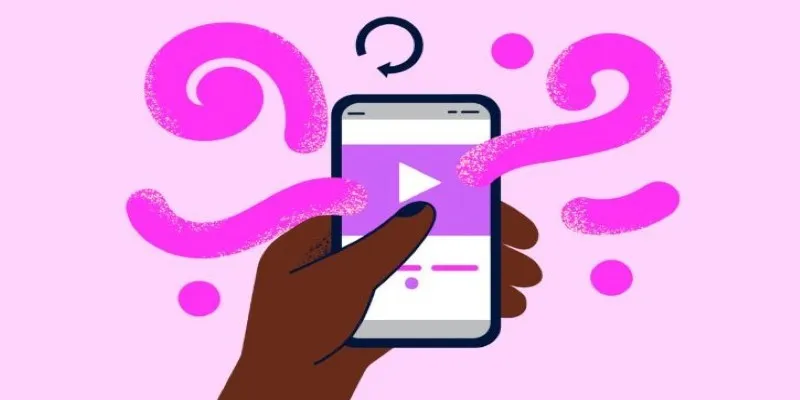How to Fix Constant Disconnections and Stay Secure Online
Using a device provides significant security and privacy benefits, particularly for those who work remotely, access restricted content, or need enhanced privacy. However, disruptions in connection can occur at crucial times during video calls, streaming sessions, and file transfers.
Unstable connections can be both annoying and risky for users who rely on secure internet access to protect their confidential tasks. Fortunately, most disconnection issues have simple solutions. The following information outlines the reasons behind connection drops and presents effective solutions to prevent interruptions.
1. Weak or Unstable Internet Connection
One of the main reasons a device keeps disconnecting is due to a weak or unstable internet connection. A device creates a secure tunnel using your usual internet connection. If your mobile data is inconsistent, your ISP is experiencing issues, or your Wi-Fi connection is insufficient, your device will likely disconnect.
How to Fix It:
- Move closer to your Wi-Fi router.
- Use an Ethernet cable for a more stable connection.
- Restart your router or modem.
- Run an internet speed test to ensure your connection is reliable.
2. Server Issues
Sometimes, the problem isn’t on your end. Your server might be overcrowded, under maintenance, or temporarily offline. High server traffic can lead to poor speeds or sporadic disconnections.
How to Fix It:
- Switch to a different server location.
- Choose servers with lower latency or those closest to your physical location.
- If your app shows server load stats, opt for one with lower usage.
3. Device Sleep or Power-Saving Modes
Many devices automatically enter sleep or power-saving modes when idle, conserving energy. During this time, network activity is often limited or paused, which can cause your device to disconnect.
How to Fix It:
- Disable battery saver or low power mode while using your device.
- Adjust your device’s sleep settings to prevent network disconnection.
- On mobile, keep the device running in the foreground or lock it in memory.
4. Network Type and Restrictions
Certain networks—especially public Wi-Fi in places like hotels, airports, or schools—may have restrictions or firewalls that interfere with connections. These networks might throttle traffic or block certain ports.
How to Fix It:
- Switch to a different network if possible.
- Try connecting over a mobile hotspot if public Wi-Fi is blocking your device.
5. Protocol Compatibility

Your chosen protocol might not be well-supported on your device or network, causing instability.
How to Fix It:
- Go to your app’s settings and change the protocol.
- Consider using WireGuard, known for being fast and reliable on most platforms.
- IKEv2 is great for mobile users who switch between networks frequently.
6. App or Software Conflicts
Some antivirus programs, firewalls, or other security tools might conflict with your device. If your antivirus software is scanning or blocking encrypted traffic, it might interfere with your connection.
How to Fix It:
- Temporarily disable your firewall or antivirus (for testing only).
- Add your app to the list of trusted apps or whitelist it.
- Ensure your device is allowed through the Windows or macOS firewall settings.
7. Outdated App or OS
Running an outdated version of your software—or even your operating system—can lead to bugs and compatibility issues that cause disconnects.
How to Fix It:
- Check for updates in your app and install the latest version.
- Make sure your device’s operating system is up to date.
- Restart your device after updating to apply changes.
8. Switch Activation

Some devices have a built-in “kill switch” that cuts off internet access when the connection drops, to protect your privacy. While useful, it can be mistaken for disconnection issues when it’s actually a protective measure.
How to Fix It:
- Check your device’s settings for the kill switch feature.
- If it’s on and disconnects frequently, either disable it temporarily or focus on fixing the cause of the drop (like poor internet).
9. High Bandwidth Usage
Streaming high-quality videos, online gaming, or transferring large files places a heavy load on your connection. Some devices may struggle with such bandwidth-intensive activities, especially on slower servers.
How to Fix It:
- Pause other downloads or streaming apps while connected to the device.
- Connect to a faster or closer server.
- Upgrade your device subscription if you’re on a limited plan.
10. Mobile Network Changes
If you’re using a device on mobile, switching from Wi-Fi to 4G/5G (or vice versa) can break your session. Many devices aren’t built to seamlessly switch networks mid-session.
How to Fix It:
- Use a protocol like IKEv2, which handles network switches more gracefully.
- Avoid switching networks while connected to the device.
Bonus Tip: Use a Reliable Provider
Not all devices are created equal. Free or cheap devices often lack the infrastructure, server quality, or stability needed for consistent performance. If your device keeps disconnecting despite trying all fixes, the issue may be the provider itself.
What to Look for in a Stable Device:
- Strong reputation and high user reviews.
- Fast, globally distributed servers.
- Support for multiple protocols and kill switch features.
- Responsive customer support.
Conclusion
A device that keeps disconnecting can quickly turn from a privacy tool into a tech headache. But the good news is that most issues—whether it’s a weak internet signal, the wrong protocol, or server overload—have straightforward solutions.
Start with the basics: check your internet connection, restart your device, and update your software. Then dig deeper into settings like protocols, sleep modes, or conflicting apps. With a little troubleshooting, you’ll be able to enjoy a smooth, stable, and secure experience—without those annoying connection drops.
Your online privacy is important, and a reliable device is a big part of protecting it. Make sure yours is doing its job without leaving you disconnected.
On this page
1. Weak or Unstable Internet Connection 2. Server Issues 3. Device Sleep or Power-Saving Modes 4. Network Type and Restrictions 5. Protocol Compatibility 6. App or Software Conflicts 7. Outdated App or OS 8. Switch Activation 9. High Bandwidth Usage 10. Mobile Network Changes Bonus Tip: Use a Reliable Provider ConclusionRelated Articles

How to Convert MPEG to WAV: A Step-By-Step Guide

How to Easily Convert AVI to MOV Using 4 Reliable Tools

Transform Your Photos into Artistic Sketches with the Best Sketch Editor

From Excel to JPG: Best Tools for Converting Charts into Images

Best Free PDF to Image Tools for Quick and Easy Conversion

Simple Methods to Convert ISO Files to MP4 for Beginners

Top 3 Simple Ways to Convert WMA to MP4 Easily

Best Practices for Converting AVI Files to JPG Format

How to Automatically Save Gmail Attachments to a Google Drive Folder: A Complete Guide

Simple Ways to Convert GIF Files to MOV Format Online

How to Effectively Convert ARW to JPG: 3 Methods You Need to Know

Best Image to PDF Converters for Desktop: 6 Top Picks
Popular Articles

GoPro Quik: Streamlined Editing for When You're in a Hurry

What is Business Process Management? A Comprehensive Guide to BPM

Best 5 Note-Taking Apps to Stay Productive and Organized This Year

How to Convert Excel to Google Sheets for Free Using Top Tools

Step-by-Step Guide to Making Time-Lapse Videos in iMovie

Connecting Google Sheets to WordPress Seamlessly

How to Get Smooth Slow Motion in After Effects Without Choppy Frames

How to Combine Videos on iPhone: 4 Top Apps for Easy Editing

The Best Employee Onboarding Software: Transforming New Hire Experiences

The 6 Best Pomodoro Timer Apps in 2025 for Maximum Focus and Productivity

How to Bulk Resize Large Images in WordPress Without Losing Quality

 mww2
mww2